- Home
- Robert Muchamore
The Escape Page 8
The Escape Read online
Page 8
CHAPTER THIRTEEN
Paul backed up to the side of an apartment block and wrapped his arms over his head as masonry crashed around him. The giant slab of bricks hit the opposite wall of the narrow alleyway and took on a spin before crashing down less than two metres from where he cowered. Pebble-sized chunks pelted his body as the mortar shattered.
‘Dad?’ Paul shouted.
He opened his eyes a fraction, only for them to be forced shut by the dust swirling through the air. The worst of the collapse had passed, but single bricks still chinked down and a woman screamed horribly. At least it wasn’t Rosie.
A second later, Paul felt a tug on his arm. Half blind and his mouth filled with dust, Mr Clarke dragged his son towards the early sunlight piercing the end of the alleyway.
‘Did you see Rosie?’ Mr Clarke asked.
Paul was coughing violently and couldn’t answer.
‘Rosie?’ Mr Clarke bellowed.
She’d sprinted ahead and stood at the end of the alleyway, in better shape than her male relatives. The German planes continued to drone as Paul forced himself to open his eyes and blink out the grit. They’d emerged into a busy square filled with dust, flames and panic. When Paul got some focus he saw the wreckage of market stalls. Every building had shattered windows and a horse thrashed helplessly on its side. Its hind quarters were badly burned and it was pinned down by the charred remains of a cart harnessed to its back.
Rosie looked anxiously at her brother’s torn and blood-spattered shirt sleeve. ‘Show me your hand.’
Paul raised his arm and saw that it was peppered with scratches and cuts. He’d hardly noticed because his grit-filled eyes were much more painful.
‘We’ll have to find some water and get that cleaned up,’ Rosie said. ‘Your head’s cut too.’
Paul was aware of a stinging sensation just above his ear and he felt with his fingertips until he found some hair matted with blood.
‘Oh, that’s clever,’ Rosie said. ‘Stick your filthy fingers in and get it infected.’
‘What can we do now?’ Paul asked, ignoring his sister and looking up at his dad.
But Mr Clarke was in a daze.
A terrible moan went up as a man hoisted an elderly woman on to his back. Her face and torso had been shredded by flying glass. Another man was calling out for a gun to put the burned horse out of its misery.
‘You’ve got a gun,’ Rosie said, giving her father a nudge.
‘Don’t be bloody daft,’ Mr Clarke said irritably. ‘I’m a foreigner walking around with a German pistol. Do you want me to get arrested?’
Rosie backed off and shook her hands furiously. ‘Well don’t just stand there, Dad! What do you want us to do?’
‘OK …’ Mr Clarke mumbled. ‘I’m trying to think … Can you remember the way back to the car?’
‘The alleyway’s blocked off with rubble,’ Paul noted.
But Rosie nodded. ‘I’m sure I can find another way back towards the river.’
‘Good,’ Clarke said, pointing across the square towards a post office. ‘You take Paul back to the car and use my first aid kit to clean up his cuts. I’m going over there to see if I can get a call through to Henderson in Paris and maybe pick up some bread if the queues aren’t too bad.’
Mr Clarke got out his wallet and gave his daughter a ten-franc note. ‘In case you come across a place selling bread, or some other kind of food that you fancy.’
‘What if we end up buying the same thing?’ Rosie asked.
Mr Clarke shrugged. ‘With the Germans smashing up the roads and bridges, supplies are going to get short. I’d rather we end up with too much food than not enough. Now start heading back and I’ll meet you back at the car in twenty minutes or so.’
‘Maybe we should stick together,’ Paul said. ‘My arm doesn’t hurt much.’
As Paul was speaking his sister realised that the aircraft had dropped out of sight, whilst the sound of their engines was getting louder. This could only mean that the pilots were coming in over the rooftops for a machine-gun attack. People in the square started running for cover and a few screams went up as a fighter cleared the flag post on top of a small civic building and let rip.
Travelling at two hundred kilometres an hour, the line of bullets crossed the square in under three seconds. Most pulsed off the cobbles and ricocheted widely, retaining enough force to kill. Direct hits pounded market stalls, tore up cars and occasionally hit human flesh.
Paul’s heart slammed as he dived into a doorway between two shop fronts with his father and Rosie bundled on top of him. He looked up, but his father forced his head down.
‘There’s more coming,’ Clarke explained.
Over the next half minute three more fighters skimmed low over the square, firing their machine guns and causing a wave of screams. There were more injured and some dead, but at least the horse got finished off.
After the fighters came a taut, dusty silence. Paul looked up and saw a fresh bullet hole in the masonry less than thirty centimetres above them.
‘Too close,’ Rosie gasped, close to tears and with her hands shaking.
A few metres ahead, a boy of about six cowered under the rusted frame of a market stall.
‘This square is too open,’ Mr Clarke said. ‘It’s a shooting gallery. Keep to the side streets as you walk back to the car.’
Another blast of machine-gun fire ripped off in the distance and an elderly refugee with his coat over his head kept rocking back and forth yelling, ‘I can’t stand it,’ over and over.
‘There’s a dot of blood on your shirt, Dad,’ Rosie noted.
Mr Clarke looked down and saw a coin-sized circle of blood just below his nipple. ‘Shrapnel,’ he explained. ‘Just a nick.’
High above them, an aeroplane was going into a dive.
‘Stuka,’ Mr Clarke yelled, as he grabbed Rosie’s hand.
The risk of falling masonry in a bomb blast made Clarke avoid the narrow alleyway they’d emerged from minutes earlier. He led his kids across the cobbles and made it into a side street as the first of three bombs exploded. The first two hit the marketplace, slaughtering many who’d already been shot, along with those struggling to drag them out of harm’s way. The third bomb hit the front steps of the civic hall, demolishing the front porch and tearing a hole in the façade that exposed desks and filing cabinets on the upper floors.
The Clarkes moved briskly into the side street, chased by dust and the sickly smell of burned meat. Rosie realised it was human flesh, but knew she had to keep the thought out of her head if she wanted to avoid breaking down.
‘What about the little boy under the table?’ Paul asked anxiously. ‘Did either of you see him after—’
Before Paul could finish his father stopped moving, to the consternation of a woman running behind with a pram who had to swerve out of his way. Mr Clarke had grabbed his handkerchief and began coughing into it.
‘Are you OK?’ Paul asked.
‘It’s the dust,’ Rosie said, shielding her eyes with a hand.
But as Clarke pulled the handkerchief away from his face, he spattered his daughter with blood.
‘Oh god,’ Rosie gasped. ‘Dad!’
With each cough Clarke wheezed desperately for air but his throat was clogged with blood, and the coin-sized patch on his shirt had turned into a soggy red dinner-plate.
‘What’s happening?’ Paul asked, as Rosie grabbed her father’s arm and helped him to sit on the kerb.
‘Deeper,’ Mr Clarke croaked, as he looked desperately at the wound in his chest. ‘Must be …’
‘It’s right where his heart is, or his lung … or something,’ Rosie said, glancing around desperately. As legs swept by she realised that theirs was just one crisis amidst a hundred.
‘Henderson,’ he croaked, as the blood-soaked handkerchief fell away from his face. ‘Find him. Give him the papers.’
‘You’re not going to die, Dad,’ Paul said, more out of hope than conviction.<
br />
Mr Clarke used the last of his energy to look at his son and mouth the word Sorry with his bloody lips.
‘Dad!’ Rosie screamed, shaking him as she glanced all around. ‘Just hang on, there must be someone …’
But suddenly there was no resistance and Mr Clarke’s head flopped backwards. Unmoving eyes stared at her, glazed and still, like a pair of marbles.
CHAPTER FOURTEEN
It’s hard to grasp when something so big happens. Paul and Rosie felt like some giant magnet held them in place. They kept looking at each other, then back at their father, to confirm that he was really dead.
Several minutes passed. The dust from the explosions settled and the aeroplanes retreated into the surrounding countryside, but neither Paul nor Rosie spoke. Their first sentence had to capture the enormity of what had happened and they couldn’t find the words.
Normally there would be a safety net – police, ambulance, telephones – but they’d seen enough of the evacuation to know that normal rules didn’t apply. They’d stepped over death and looked away from pain and now it was their turn to be the ones sitting at the roadside while the world passed by.
‘I’ve lost my mummy,’ a small boy said.
It was the lad Paul had seen hiding under the market stall. He was stocky, no more than six, and so dusty that he could have been a statue of himself. Part of Rosie wanted to tell him to scram because she had enough problems, but he was a cute little thing and it was a relief to have something else to focus on.
‘Where did you last see her?’ Rosie asked gently. ‘Maybe she ran to the other side of the square.’
‘I don’t know,’ the boy said, after which their faces took up the conversation. The boy’s eyes asked if it was OK to sit down beside them on the kerb and Rosie’s nod indicated that it was.
‘I’m Hugo,’ the boy said.
‘Are you from Tours?’
‘Hugo Charmain. Seventh arrondissement3, Paris,’ the boy said grandly. As he spoke he pulled a piece of string out from inside his shirt. A label with his name and address was attached to the end.
‘Were you just with your mummy?’ Paul asked.
Hugo nodded sadly, before looking at Mr Clarke. ‘My daddy is fighting for France. Is that yours?’
‘Yes,’ Rosie said.
‘Why did he die?’ Hugo asked, but neither Paul nor Rosie gave an answer.
The entrance to the bombed square was less than thirty metres away. A number of small fires had turned into one inferno now and refugees were wading into the smoke to gather handcarts and suitcases abandoned in the rubble.
Paul looked gravely at his sister. ‘What can we do now?’
‘I …’ Rosie said, before pausing to think. ‘We have to stay calm. We’ll have to leave Dad here, but take his money and all of his valuables so that they’re not stolen. Then we’ll go back to the car and get the documents.’
‘Have you ever driven the car?’ Paul asked. ‘Do you think we could?’
Rosie shook her head. ‘I’ve watched Dad, but I’ve never worked it out.’
‘So how do we get south?’ Paul asked anxiously.
‘We’ll have to improvise. Maybe we can walk. It might take days, though, and those documents weigh a tonne. Or maybe we could find another refugee who can drive but doesn’t have a car. Then they can drive us.’
‘That might work,’ Paul agreed. ‘But we should try calling Henderson first.’
Rosie nodded. ‘Although Dad couldn’t track him down yesterday, and I’m not even sure if his number is written down anywhere.’
‘Maybe if we stay here, Henderson will come and find us.’
Rosie tutted. ‘Don’t be thick, Paul. There’s about a million people on the road. How’s he going to do that?’
‘I don’t know. I could draw a big sign or something.’
Rosie shook her head with contempt. ‘He doesn’t even know that Dad’s dead. We’re on our own.’
‘All right,’ Paul said irritably. ‘I’m just thinking out loud.’
‘Besides, whatever we do we’ve got to be discreet,’ Rosie continued. ‘The German agents could be out looking for us too.’
The string of events was so overpowering that Paul had forgotten that it began with a German agent in his bedroom less than twenty-four hours earlier. ‘What if the police are looking for us too?’ he asked.
‘They’ll have found the dead bodies in our apartment,’ Rosie said, nodding. ‘There’s bound to be an investigation, but hopefully they’ve got other things on their minds right now.’
‘I’m going to look for my mummy,’ Hugo said, as he stood up and raced off towards the square.
There was an innocence about Hugo’s words that choked Rosie up. He made it sound like he was going into the garden to kick a ball around. How would the little boy react if he found his mummy badly burned or injured? Rosie wanted to help, but she was engulfed in her own problems and within a few seconds Hugo had vanished into the smoke.
Rosie began undoing her father’s jacket. She took out his pocket book and wallet. ‘Get his watch and his rings, Paul.’
Paul had never touched a dead person before. He wanted to argue with Rosie, because taking a wallet from a jacket seemed far less ghoulish than prising off rings.
‘Maybe we should leave him be,’ Paul said. ‘Out of respect.’
This annoyed Rosie and her natural bossiness surfaced. ‘I don’t know about you, Paul, but I haven’t got a cheque book or a bank account. A ring or a watch might buy us food or petrol on the road.’
‘OK,’ Paul said. ‘Don’t bite my head off.’
But he didn’t mind being angry with his sister. It gave him something to focus on while twisting the rings off his dead father’s hand. It took less than a minute for the pair to strip away everything of value.
Rosie stood up and handed Paul the gun. But she was older and bossier, and it seemed all wrong.
‘What do you want me to do with that?’ he asked, shaking his head fretfully.
‘Tuck it in your trousers,’ Rosie explained. ‘I’m wearing a summer dress. What am I gonna do, stick it up my bum?’
Paul pushed the gun down his trousers and pulled his shirt out to cover it over.
‘Let’s move,’ Rosie said coldly.
‘What about Dad’s body?’
‘Stick around feeling sorry if you want. But I don’t plan on being here when the planes come back.’
Paul was indignant. ‘How come you’re so heartless?’
‘I’m not heartless,’ Rosie snapped, as she grabbed Paul by the scruff of his shirt and yanked him in close. ‘Do you think I’m happy about this? Do you think I don’t feel like sitting on the kerb crying my eyes out? But the bombs dropping out of the sky are real, Paul. The German armies heading towards us are real. We’ve got to be strong because weak people are dying all around and nobody gives a damn.’
A tear streaked down Rosie’s cheek as she shoved her startled brother away.
‘Now you’ve made me cry,’ Rosie said aggressively, as she bent forwards and kissed her father’s forehead. ‘I can’t look at him any more.’
After the kiss, Rosie began to walk away. Paul hurriedly removed his father’s bloody cravat. Then he straightened the silk square by flicking it in the air and laid it over his father’s face. The wind would probably blow it away, but it was the only dignified gesture he could think of.
Paul felt weird as he realised he’d never see the face beneath the cravat again. For a moment he felt like he was going to shit his pants, but he managed to stand up and dash after his sister.
‘Rosie … Rosie! Wait!’
*
It’s hard to think if you’re moving fast and Rosie didn’t want to think about anything. Smaller and weaker, Paul struggled to keep up but knew that he had to because Rosie was all he had left. The army had shored up the damaged bridge and although they’d been away from the car for less than half an hour the great queue of traffic that had driven swift
ly through the night had moved on and been replaced by a thinly spaced convoy of horses, handcarts and dirty humans.
‘Where’s it gone?’ Paul shouted, as he approached a distinctive kink in the road where he was sure they’d left the car.
Rosie was twenty metres ahead and she’d already eyed the outline of the Citroën through a pair of trees. The vehicle leaned forwards with its front wheels tilted into a ditch. She gasped as she scrambled towards it. The back end had a long dent where a high vehicle – most likely a truck – had forced it off the road.
‘Is it OK?’ Paul asked breathlessly as he raced up behind his sister. ‘How are we gonna pull it out of there?’
As Rosie walked around to the passenger side, she could smell petrol and noticed a dark patch on the earth, with the screw-in filler cap lying beside it.
‘They’ve siphoned off our petrol,’ Rosie gasped. ‘There goes our chance of getting someone to drive us.’
‘Damn,’ Paul said, slapping his hands against his thighs, before looking inside the car. ‘It doesn’t look like anything’s been touched inside.’
Rosie unlocked the trunk and sure enough their luggage remained.
‘Maybe we could buy some petrol in town,’ Paul suggested, as he opened the back door and leaned in. The smell of cracked leather and his father’s hair tonic now seemed like part of some other kid’s life.
‘No chance,’ Rosie said. ‘I haven’t seen a petrol pump without a sold-out sign on it since we left Paris.’
‘What about Dad’s watch? It’s gold, it must be worth way more than a tank of petrol.’
Rosie shrugged forlornly. ‘Paul, right now I doubt we’d be able to buy a tank of petrol if the entire trunk was filled with thousand-franc notes. Besides, I doubt his watch is worth much. Dad had a decent job and we’re better off than most, but we’re not millionaires you know.’
When he was little Paul had often been rebuked for messing around with his father’s watch and this had given him an exalted sense of its value. Now he realised it was nothing more than battered gold plate.

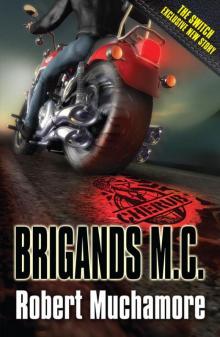 Brigands M.C.
Brigands M.C. Home
Home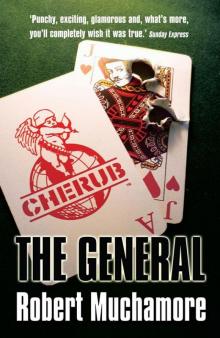 The General
The General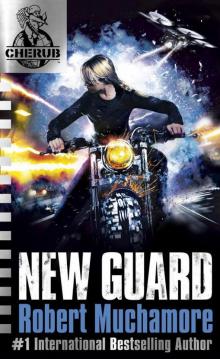 New Guard
New Guard Lone Wolf
Lone Wolf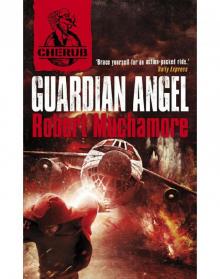 Cherub: Guardian Angel: Book 14
Cherub: Guardian Angel: Book 14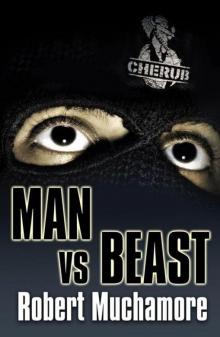 Man vs. Beast
Man vs. Beast The Escape
The Escape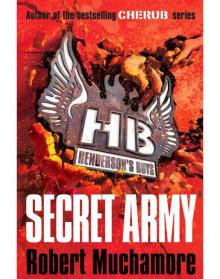 Secret Army
Secret Army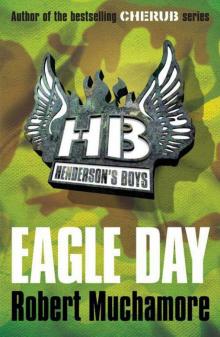 Henderson's Boys: Eagle Day: Book 2
Henderson's Boys: Eagle Day: Book 2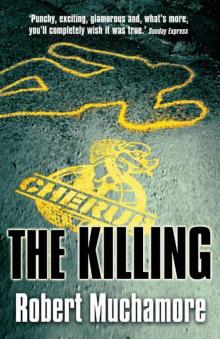 The Killing
The Killing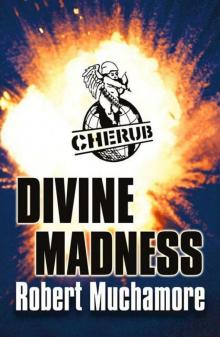 Divine Madness
Divine Madness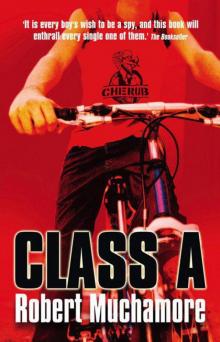 Class A
Class A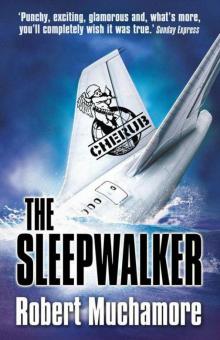 The Sleepwalker
The Sleepwalker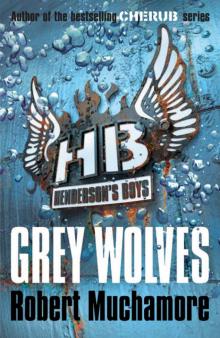 Henderson's Boys: Grey Wolves
Henderson's Boys: Grey Wolves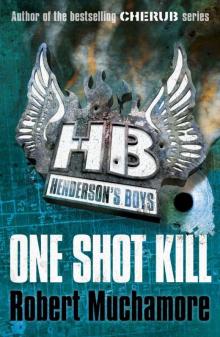 Henderson's Boys: One Shot Kill: One Shot Kill
Henderson's Boys: One Shot Kill: One Shot Kill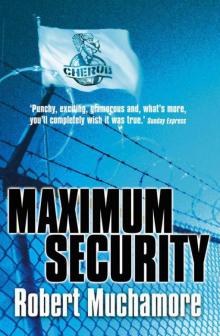 Maximum Security
Maximum Security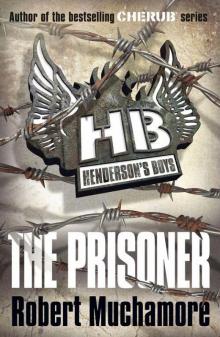 The Prisoner
The Prisoner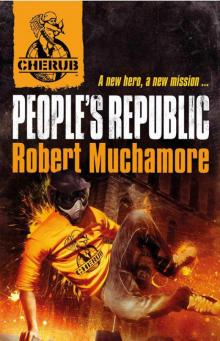 People's Republic
People's Republic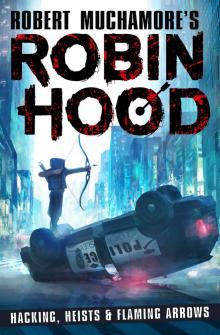 Robin Hood: Hacking, Heists and Flaming Arrows
Robin Hood: Hacking, Heists and Flaming Arrows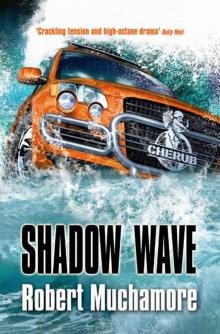 Shadow Wave
Shadow Wave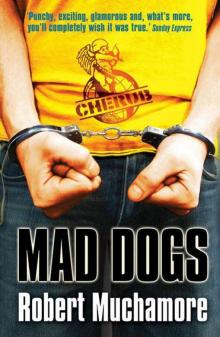 Mad Dogs
Mad Dogs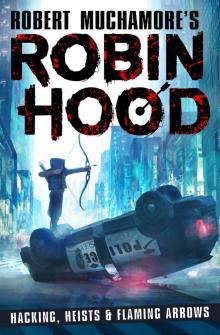 Robin Hood
Robin Hood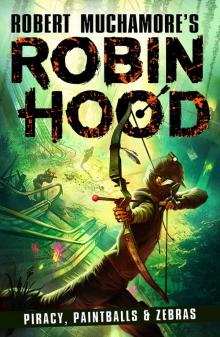 Robin Hood 2
Robin Hood 2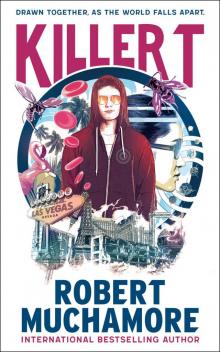 KILLER T
KILLER T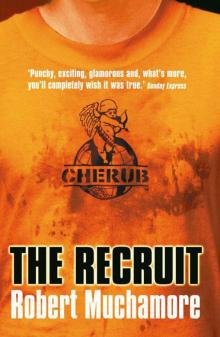 The Recruit
The Recruit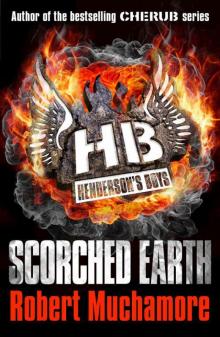 Henderson's Boys: Scorched Earth
Henderson's Boys: Scorched Earth The Fall
The Fall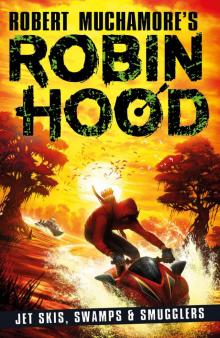 Jet Skis, Swamps & Smugglers
Jet Skis, Swamps & Smugglers Black Friday
Black Friday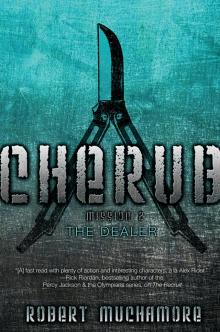 The Dealer
The Dealer CHERUB: Mad Dogs
CHERUB: Mad Dogs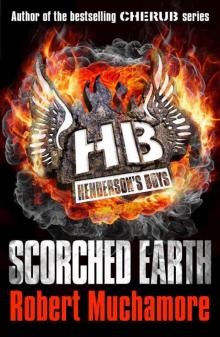 Scorched Earth
Scorched Earth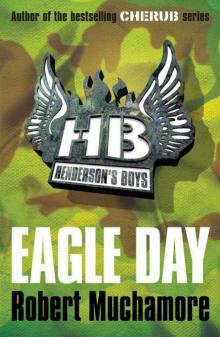 Henderson's Boys: Eagle Day
Henderson's Boys: Eagle Day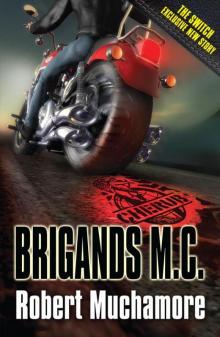 CHERUB: Brigands M.C.
CHERUB: Brigands M.C.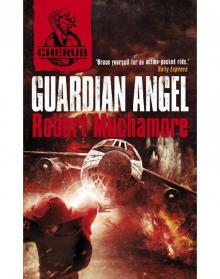 CHERUB: Guardian Angel
CHERUB: Guardian Angel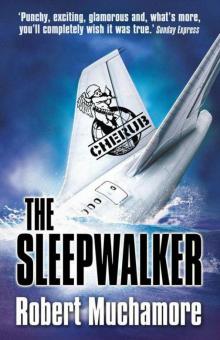 CHERUB: The Sleepwalker
CHERUB: The Sleepwalker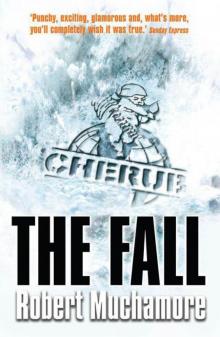 CHERUB: The Fall
CHERUB: The Fall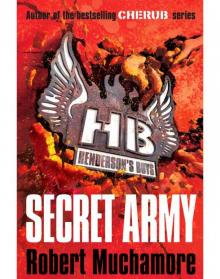 Henderson's Boys: Secret Army
Henderson's Boys: Secret Army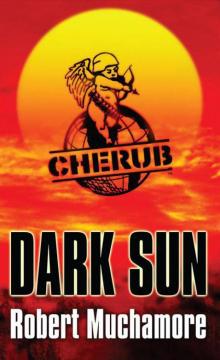 CHERUB: Dark Sun
CHERUB: Dark Sun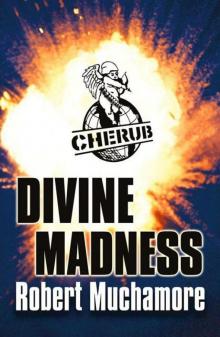 CHERUB: Divine Madness
CHERUB: Divine Madness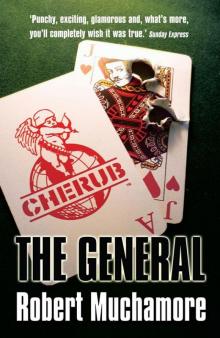 CHERUB: The General
CHERUB: The General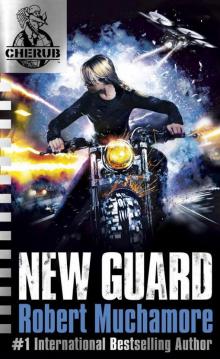 New Guard (CHERUB)
New Guard (CHERUB)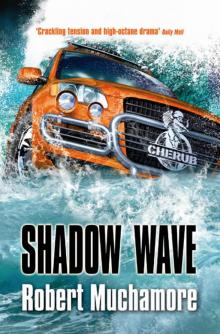 CHERUB: Shadow Wave
CHERUB: Shadow Wave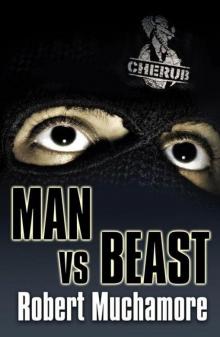 CHERUB: Man vs Beast
CHERUB: Man vs Beast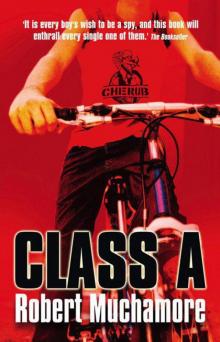 CHERUB: Class A
CHERUB: Class A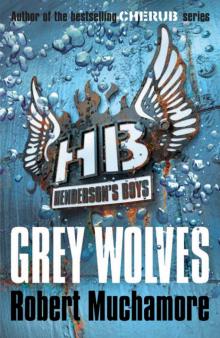 Henderson’s Boys 4: Grey Wolves
Henderson’s Boys 4: Grey Wolves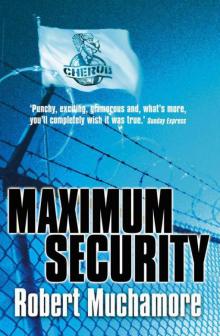 CHERUB: Maximum Security
CHERUB: Maximum Security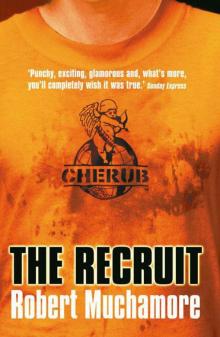 CHERUB: The Recruit
CHERUB: The Recruit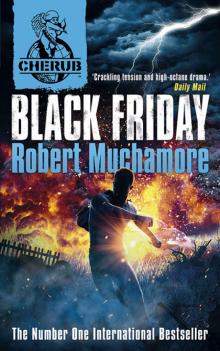 CHERUB: Black Friday
CHERUB: Black Friday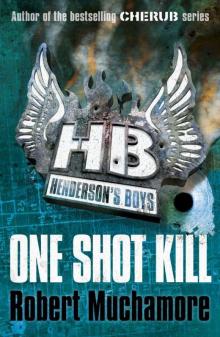 One Shot Kill
One Shot Kill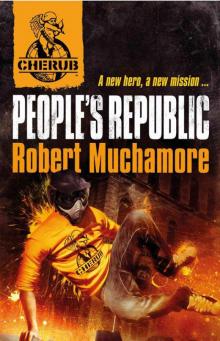 CHERUB: People's Republic
CHERUB: People's Republic